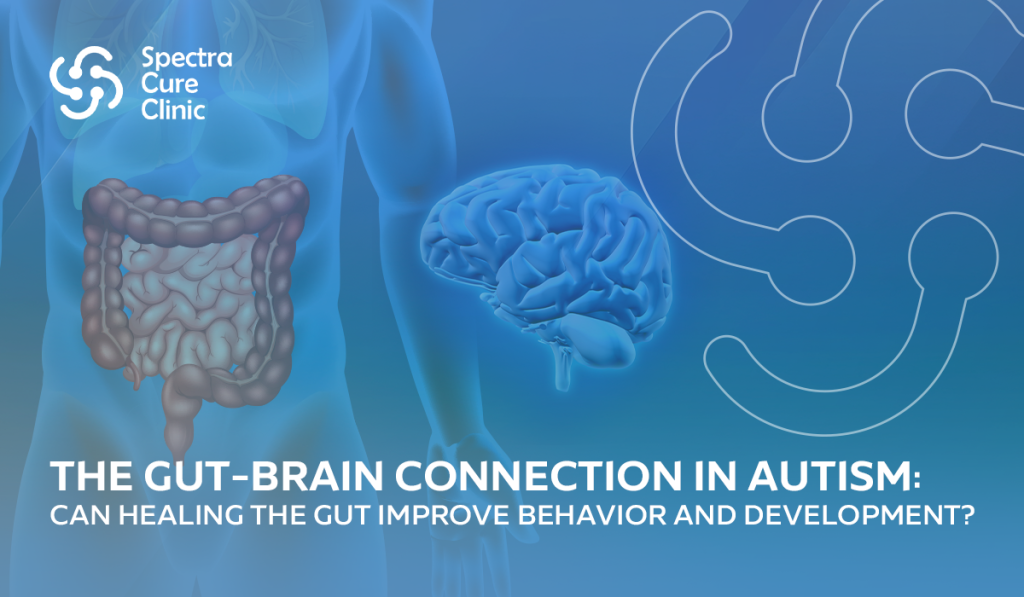
One mom said, “Every time my son had dairy or sugar, the meltdowns got worse. I thought it was just in my head — until we started working on healing his gut. Everything changed.”
Today, science is catching up with what many parents have long suspected: there is a powerful
connection between the gut and the brain, and for many children with autism, the gut might
hold the key to unlocking better communication, mood, and development.
What Is the Gut-Brain Axis?
The gut-brain axis is the constant two-way communication between the digestive system and
the brain. The gut contains over 100 million neurons and produces about 90% of the body’s serotonin, the neurotransmitter that regulates mood, sleep, and social behavior.
In children with autism, this communication is often disrupted, leading to:
- Digestive issues (constipation, diarrhea, bloating.
- Behavioral problems and meltdowns.
- Sleep disturbances.
- Anxiety and hyperactivity.
- Sensory sensitivities.
What Role Does the Gut Microbiome Play?
Many children on the spectrum suffer from gut dysbiosis, an imbalance of good and bad
bacteria in the gut. This can result in:
- Poor nutrient absorption.
- Chronic inflammation.
- A “leaky gut,” where toxins and undigested food particles enter the bloodstream and potentially reach the brain.
At Spectra Cure Clinic, we’ve seen major improvements in:
- Mood
- Eye contact and speech
- Sleep quality
- Sensory regulation
- Immunity
How Does Functional Medicine Treat This?
We don’t just treat the symptoms — we find and address the root cause. Our healing approach includes:
- Comprehensive stool testing to check for bacteria, parasites, inflammation, and yeast.
- Food sensitivity testing to identify triggers.
- High-quality supplements and targeted probiotics.
- Dairy-free and gluten-free nutritional guidance.
- Lifestyle recommendations that support long-term healing.
Each child is unique, and our treatment plans are fully personalized to support their needs.
Furthermore;
- Up to 70% of children with autism experience gastrointestinal symptoms.
- Gut inflammation has been linked to brain inflammation and behavioral regression.
- In many of our cases, gut healing has led to significant improvements in speech, focus, and emotional regulation.
Post Views: 22

